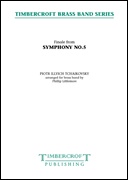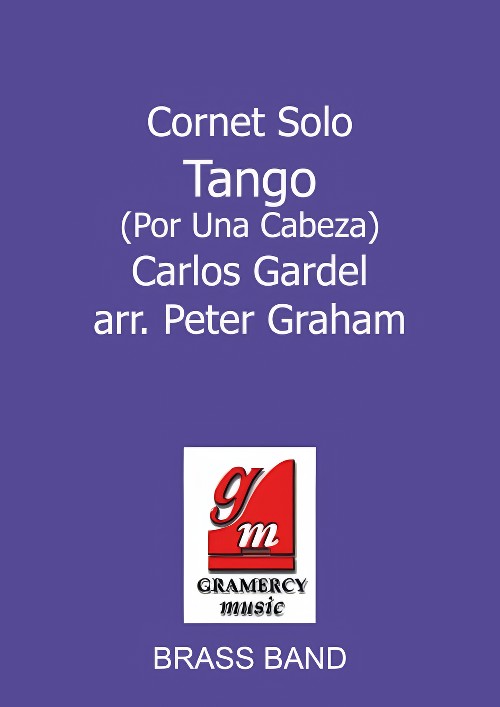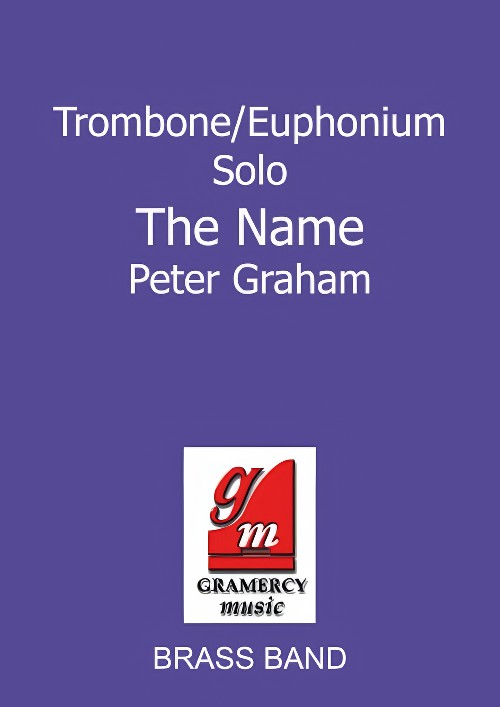Results
-
 £54.20
£54.20STILL ROCKING ! (After all these years!)(Brass Band) - Fernie, Alan
The Music of Status Quo. Grade: Medium
Estimated dispatch 7-14 working days
-
 £69.95
£69.95SWISS FESTIVAL OVERTURE (Brass Band - Score and Parts) - Sparke, Philip
Duration: 9:11 Recorded on Polyphonic QPRL089D Harmony Music
Estimated dispatch 7-14 working days
-
 £32.95
£32.95SWISS FESTIVAL OVERTURE (Brass Band - Score only) - Sparke, Philip
Duration: 9:11 Recorded on Polyphonic QPRL089D Harmony Music
Estimated dispatch 7-14 working days
-
 £45.00
£45.00Symphony No.1, Finale from (Brass Band - Score and Parts) - Rachmaninoff, Sergei - Littlemore, Phillip
Rachmaninov composed his First Symphony in 1895, at the age of just 22 years. It received its first performance on March 27, 1897, at a Russian Symphony Society concert in St. Petersburg with Alexander Glazunov conducting. The premiere was not well-received, and Rachmaninov himself blamed Glazunov for a lacklustre approach for beating time rather than finding the music. Some contemporary reports even suggested that Glazunov was inebriated when he took to the stage! Despite the disappointment of the premiere performance, Rachmaninov never destroyed the score but left it behind when he left Russia to settle in the West, eventually it was given up for lost. After the composer's death, a two-piano transcription of the symphony surfaced in Moscow, followed by a set of orchestral parts at the conservatory in Saint Petersburg. In March 1945, the symphony was performed in Moscow for the first time since its 1897 premiere. It was a grand success, and this led to a new and more enthusiastic evaluation of the symphony. In March 1948 it received a similarly successful American premiere and the work proceeded to establish itself in the general repertory. The final movement (Allegro con fuoco) is colourful and grand but not without its darkly contrasting, menacing episodes that intensifies its malevolence. It is a work overflowing with ideas demonstrating a strong, highly individual, and self-assured young talent. Duration: 5:40
Estimated dispatch 7-14 working days
-
 £45.00
£45.00Symphony No.5, Finale from (Brass Band - Score and Parts) - Littlemore, Phillip
Tchaikovsky composed his fifth symphony in the summer of 1888. He suggested that the opening-and recurrent-theme of the symphony represented "a complete resignation before Fate." The finale begins with a slow introduction of the 'fate' theme which segues into an Allegro Vivace of drive and energy, during which a majestic version of the fate theme periodically emerges. Finally, after a notorious "false" ending, the music courses ahead to a dramatic climax. Duration: 7:30
Estimated dispatch 7-14 working days
-
 £44.95
£44.95Tango (Por Una Cabeza) (Cornet Solo with Brass Band) - Gardel, Carlos - Graham, Peter
Por una cabeza, literally translated as "by a head [of a horse]" in Spanish (meaning a horse winning a race by one head's distance), is one of the most famous and popular Argentine tangos.Composer Carlos Gardel (11 December 1890 - 24 June 1935) was a singer, songwriter and actor, and is perhaps the most prominent figure in the history of tango. The music has appeared in numerous TV and Film soundtracks, perhaps most memorably in the famous dancing scene featuring Al Pacino in Scent of a Woman. This extended arrangement for cornet (or trumpet) incorporates a cadenza and newly written interludes.
Estimated dispatch 7-14 working days
-
 £69.99
£69.99That's the Way I Like 'Em (Brass Band - Score and Parts)
For many years Peter Kleine Schaars' jazz quartet provided sparkle and energy for various festivities and other occasions. If required the ensemble could alternate jazz repertoire with pop and latin music too. Their wide experience taught the musicians that an hour of unbeatable repertoire is the perfect end to every swinging party. Based on this practical knowledge Kleine Schaars has chosen his favourite pop pieces and arranged them in this animated medley entitled That's the Way (I like Them). 08:45
Estimated dispatch 7-14 working days
-
 £85.00
£85.00The Drop: Remixed (Brass Band - Score and Parts) - Dobson, Simon
Originally commissioned as the set test piece for Section B of the 2007 European Brass Band Championships, The Drop was re-worked and extended as The Drop: Remixed for Leyland Band to perform at the 2008 RNCM Festival of Brass in Manchester. Ideal as a First Section brass band test piece, The Drop: Remixed contains much tuneful and dance-based music and finishes with a massive drum 'n 'bass-inspired ending.Suitable for 1st Section Bands and aboveDuration: 12.00
Estimated dispatch 7-14 working days
-
 £44.95
£44.95The Great Race (Euphonium Solo with Brass Band - Score and Parts) - Graham, Peter
Finale from In League with Extraordinary GentlemenThe Great Race, for solo euphonium and band, follows Phileas Fogg on the last stage of his epic journey "Around the World in Eighty Days" (from the novel by Jules Verne). The moto perpetuo nature of the music gives full rein to the soloist's technical virtuosity. As the work draws to a conclusion, the frantic scramble by Fogg to meet his deadline at the Reform Club in Pall Mall, London, is echoed by the soloist's increasingly demanding ascending figuration, set against the background of Big Ben clock chimes.
Estimated dispatch 7-14 working days
-
 £44.95
£44.95The Name (Trombone or Euphonium Solo with Brass Band - Score and Parts) - Graham, Peter
Solo for Trombone (or Euphonium Bb). Recorded by Brett Baker with the Black Dyke Band on Call of the Cossacks - Music of Peter Graham Vol II.
Estimated dispatch 7-14 working days
